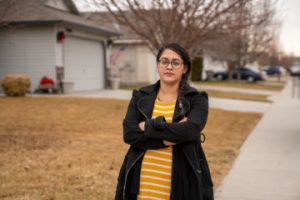State solution to the issue of qualified immunity under federal law
Qualified immunity is a judge-made doctrine that shields government officials from personal accountability when they violate the Constitution. Created by the U.S. Supreme Court in 1982, qualified immunity is at the center of calls for police reform. There is broad, bipartisan support—including from political leaders, community activists, legal experts, and celebrities—for ending qualified immunity to address issues of accountability highlighted by George Floyd’s killing.
Because qualified immunity is a federal judicial creation, only the U.S. Supreme Court or Congress can completely end the doctrine. But state legislators do not have to wait—they can address accountability in another way.

The Institute for Justice offers the “Protecting Everyone’s Constitutional Rights Act” (PECRA)—state legislation that restores constitutional accountability. It guarantees that if citizens must follow the law, government officials must follow the Constitution. Moreover, it solely addresses state law and does not conflict with federal law currently or in the future should Congress or the Supreme Court act on qualified immunity. It is an alternative approach to repealing or overturning qualified immunity, that
- Instills accountability
- Provides remedies to individuals whose rights have been violated
- Does not subject police officers and other government employees to personal financial liability.
- Does not burden well-run governments with new requirements, oversight, reporting or costs.
PECRA applies to state and municipal governments the same vicarious liability faced by private employers for their employees’ actions. When a private employer’s employee commits a wrong within the scope of his employment, the victim may sue the private employer. For example, an injured person can sue a pizza company for the damages its delivery driver causes. But governments unfairly have given themselves special treatment to avoid this kind of liability.
PECRA applies vicarious liability to state and municipal governments. If a government employee does something wrong in the name of the government, the government should stand behind that person’s actions just like a private employer. This incentivizes the government to take more responsibility for hiring, overseeing and disciplining employees the way private employers do.
Get Started Today.
Please fill out this form and an IJ staff member will reach out to you shortly.
